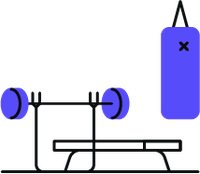- Our agents can help you save
- (888) 676-5927

Updated May 8, 2025

If you’re looking for the peace of mind that comes with a term life insurance policy, Insurance Programs can help. Just enter your details below to start the process. We allow you to compare term life insurance policies from companies like Ethos and USAA to see which carrier offers the best terms and rates. Feel like you need a little more information first? Read on to learn what life insurance type will work best for you!
After you pass away, your beneficiary must file a claim with the life insurance company and submit relevant documentation, such as a death certificate. The beneficiary may choose how the death benefit will be paid out to them — either via lump sum or annual payments. Each life insurance payment option is paid out tax.
| Life Insurance Covers | Life Insurance Typically Does Not Cover |
|---|---|
|
|
| Life Insurance Type | Pros | Cons |
|---|---|---|
| Universal Life Insurance |
|
|
| Whole Life Insurance |
|
|
| Term Life Insurance |
|
|






Some jobs are riskier than others — but the same applies to how you like to spend your leisure time as well. If you’re a pilot with a passion for skydiving and climbing, your premium may reflect the elevated risks posed by your lifestyle.

Although these personal factors affect your premium to a lesser extent than the above, these are still used as risk indicators. For instance, you could be charged a pricier rate if you have a history of getting into car collisions. From the eyes of a life insurance provider, a bad driving record is associated with the heightened risk of the policyholder suffering an accidental death.
The death benefits payout beneficiaries receive is not considered taxable income. If your family is expected a death benefit of $1 million after you pass, they can expect the full amount. Many policyholders strategically plan to pay future family expenses tax — including college tuition or mortgage payments — by enrolling in life insurance.
Life insurance could be a smart long-term investment for those who are:
After submitting an initial application and undergoing a phone screening and (in many cases) medical exam, you will wait as the insurer gathers additional financial, driving, and medical information. Then, you simply confirm and sign your policy. Upon your death, your beneficiary will file a claim with your insurer and submit relevant documentation. As long as the policy is active upon your death, you have not submitted any fraudulent information, and you have paid your premiums on time, the death benefit will be paid out, tax-free, to your beneficiary in either a lump sum or annual payments.
The best life insurance for you depends upon your unique circumstances. Term life insurance is a cost-effective option for temporary coverage, while permanent life insurance (e.g. universal life insurance, whole life insurance) offers lifelong protection and potential cash value growth. Term life insurance is often best for those anticipating a decrease in financial obligations over time and just want pure protection. Permanent is typically best for those with lifelong dependents or who want to save for retirement.
The application and underwriting process for life insurance typically takes two to eight weeks. It can take even longer if you or your medical provider contribute incomplete or inaccurate information or if additional health issues are uncovered at any stage of the process.